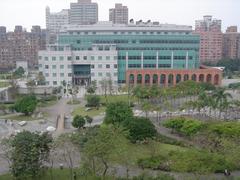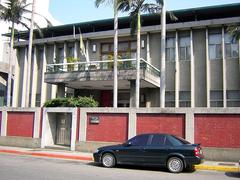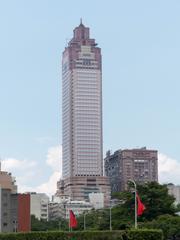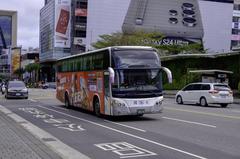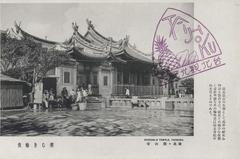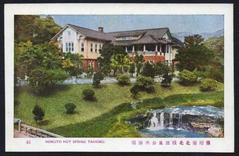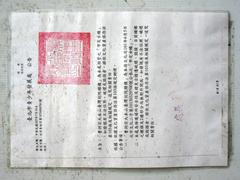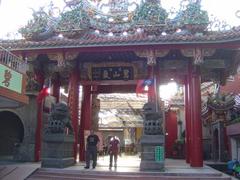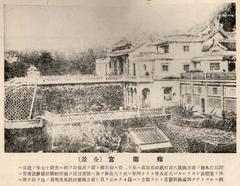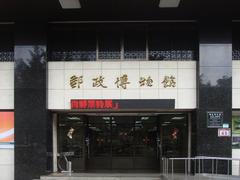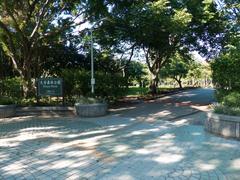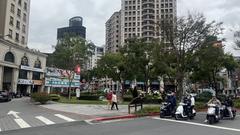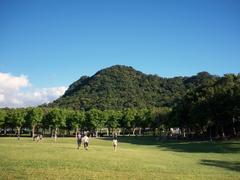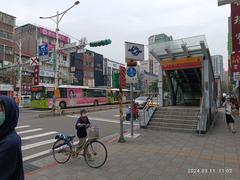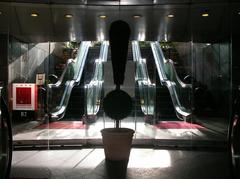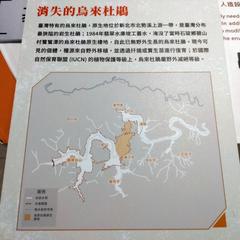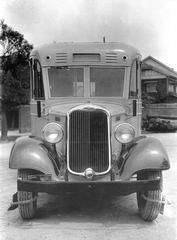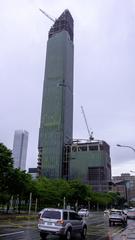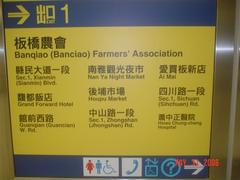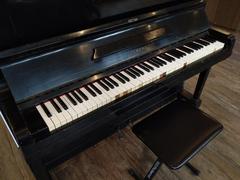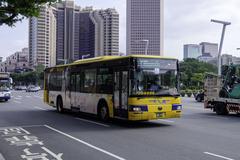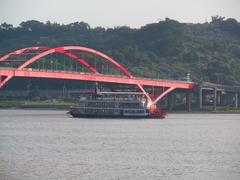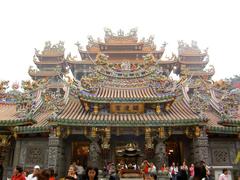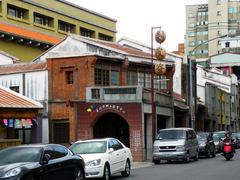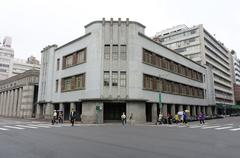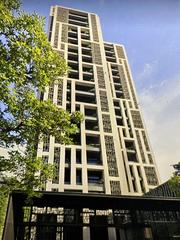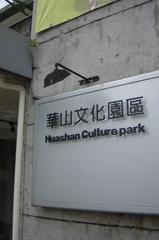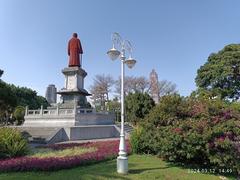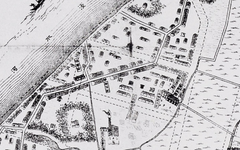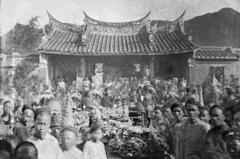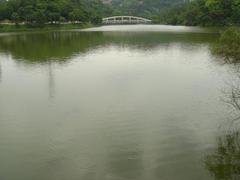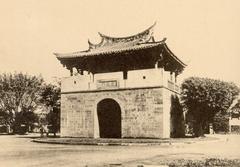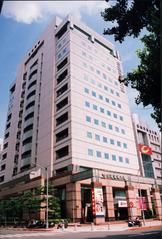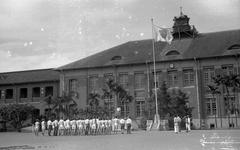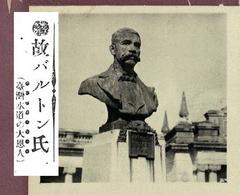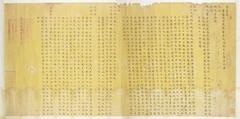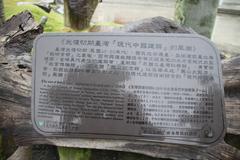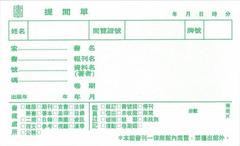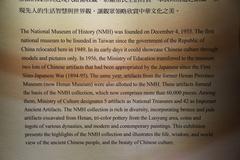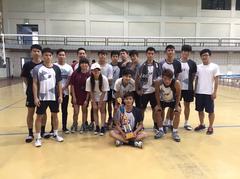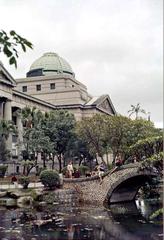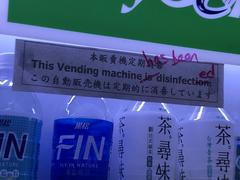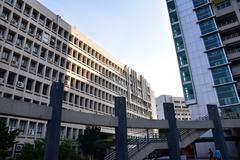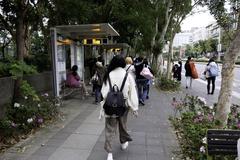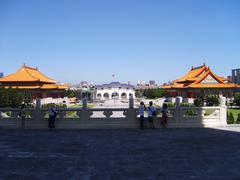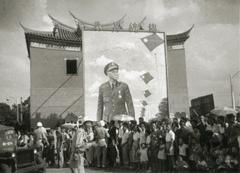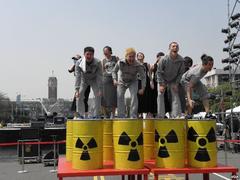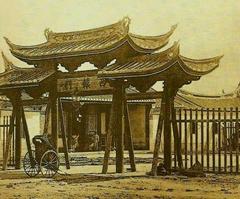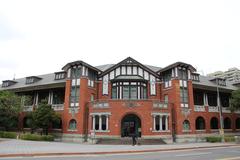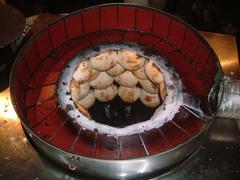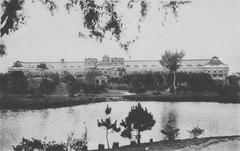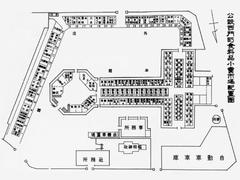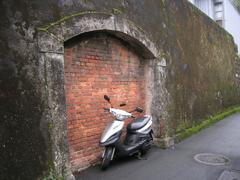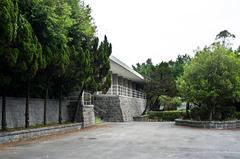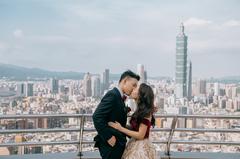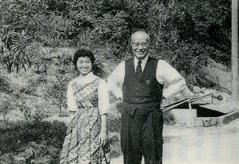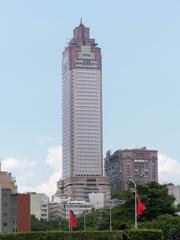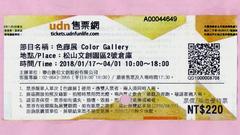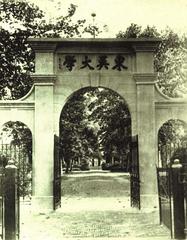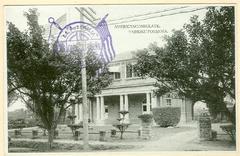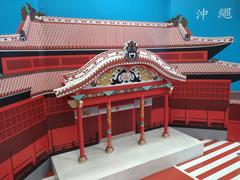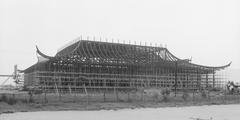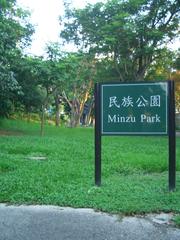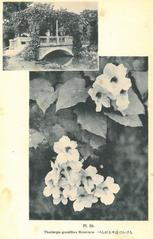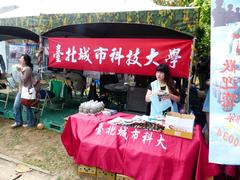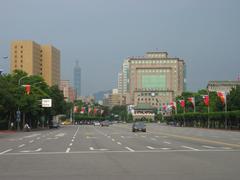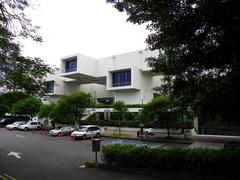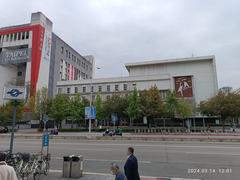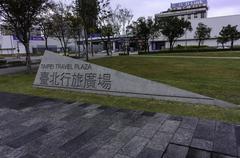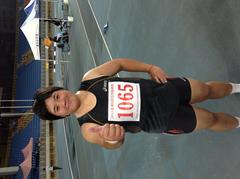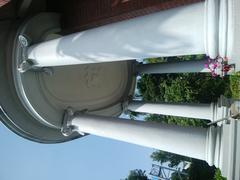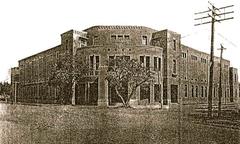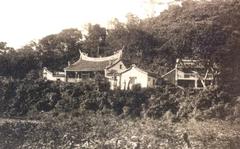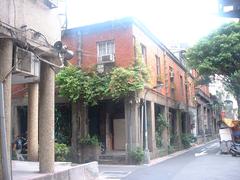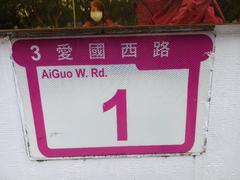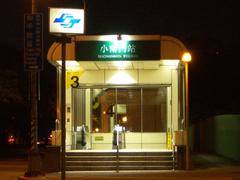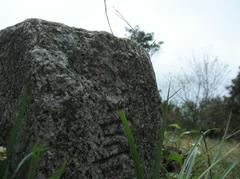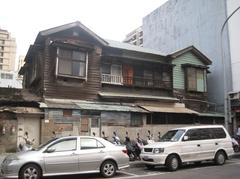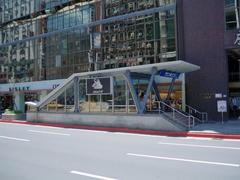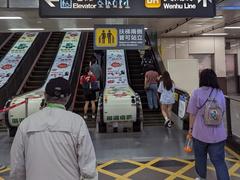
Taipei Arena Station: Visiting Hours, Tickets, and Comprehensive Tourist Guide
Date: 04/07/2025
Introduction: Taipei Arena Station and Its Urban Significance
Located in the heart of Taipei’s Songshan District, Taipei Arena Station (台北小巨蛋站) is not just a vital transit hub on the Taipei Metro but also the primary gateway to the iconic Taipei Arena. As a premier venue for sports, concerts, and cultural events, Taipei Arena stands as a symbol of Taipei’s modern identity. This guide delves into its historical evolution, architectural marvels, cultural importance, and practical visitor information, ensuring both tourists and locals can fully experience this dynamic urban landmark and its vibrant surroundings (Taipei Arena official, Klook).
Originally, the location was home to the Taipei Municipal Baseball Stadium—a cherished sports hub—before being transformed into today’s multifunctional complex. Construction began in 2001 and the arena opened in 2005, marking a new chapter in Taipei’s commitment to sustainable urban development and cultural vitality. The station’s design theme—“Energy, Movement, Light, Tracks”—mirrors the city’s dynamism and the arena’s role as a multifaceted gathering place (Guide to Taiwan, Taipei Quarterly).
Table of Contents
- Introduction
- Historical Evolution
- Architectural Significance
- Cultural and Urban Impact
- Practical Visitor Information
- Annual and Thematic Events
- Nearby Attractions
- Visitor Tips
- Frequently Asked Questions
- Conclusion
- References
Historical Evolution of Taipei Arena Station and Its Site
From Baseball Stadium to Urban Landmark
The site of today’s Taipei Arena and its station was originally the Taipei Municipal Baseball Stadium, a focal point for sports in Taipei throughout the 20th century. In response to growing urban and entertainment needs, the city initiated the transformation in 2001, culminating in the opening of Taipei Arena in 2005. This redevelopment represents Taipei’s ability to blend heritage with innovation and meet the evolving needs of its citizens (Taipei Arena official).
Naming and Thematic Identity
Initially named Taipei Stadium Station, the transit stop was renamed Taipei Arena Station to reflect the new venue’s identity as a center for sports and entertainment. The broader area is now known as Taipei City Sports Park, reinforcing its athletic and cultural focus. The station’s “Energy, Movement, Light, Tracks” design motif encapsulates the vibrant spirit of both the arena and the city (Klook).
Architectural Significance
Collaborative Design and Vision
Taipei Arena and its MRT station were designed through collaboration between local firm Archasia and the internationally acclaimed Populous, renowned for expertise in sports and entertainment architecture. The vision was to create a landmark that would symbolize Taipei’s modernity while providing an adaptable, world-class venue (Klook).
Structural Highlights
The arena features two underground and five above-ground levels, constructed with reinforced concrete, spanning approximately 90,900 square meters. The main hall accommodates up to 15,000 for sports and 7,000–13,000 for concerts. The MRT station is 219 meters long, 21 meters wide, and 26 meters deep, with an island platform, five exits, and full accessibility (Taipei Arena official).
Acoustic and Functional Innovations
A distinctive asymmetrical roof enhances acoustics—a critical feature for major concerts and performances. The design includes a high-altitude catwalk for safe maintenance and efficient large-vehicle access for event logistics (Taipei Arena official).
Multipurpose Flexibility
Taipei Arena’s flexible design supports a range of events: basketball, ice skating, concerts, and theater. Its floor can transform into an international-standard ice rink. The subsidiary “Ice Land” arena offers year-round skating and seats 800 spectators (Taipei Arena official).
The Sky Screen
The massive Sky Screen LED display, installed in 2006, is among the world’s largest outdoor displays. It automatically adjusts brightness and delivers vibrant visuals, making the arena a visual icon day and night (Klook).
Integration with Urban Life
The complex incorporates 2,000 square meters of commercial space, including restaurants, shops, and fitness centers, making it a lively destination beyond event times (Taipei Arena official).
Cultural and Urban Impact
Hub for Major Events
Taipei Arena is a cultural beacon, hosting international concerts, sports tournaments, and the beloved annual Chinese New Year’s Eve “Super Star” event since 2011. Its adaptability cements its status as a cultural icon (Klook, Concerts50).
Modern Identity and Urban Connectivity
The evolution from baseball stadium to world-class arena illustrates Taipei’s commitment to sustainable, adaptive urban development. Taipei Arena Station is a vital MRT node, offering multiple exits and elevators, and easy connectivity to hotels, restaurants, and shopping (Guide to Taiwan, Taipei Quarterly).
Practical Visitor Information
Visiting Hours
- Arena: Generally open from 9:00 AM–9:00 PM, subject to event schedules.
- MRT Station: Operates approximately 6:00 AM–midnight.
- Ice Rink: Weekdays 10:00 AM–9:00 PM, weekends 9:00 AM–9:00 PM.
For the latest details, always check the official event calendar.
Ticketing and Entry
- Purchasing: Buy tickets online via official platforms, at the box office, or through authorized retailers. Early booking is advised for popular events (Concerts50).
- Pricing: Varies by event. Ice skating sessions typically NT$200 for two hours; skate rental NT$80.
- Entry: Security checks are standard—arrive early to avoid delays.
Accessibility
Taipei Arena and its station are fully accessible, with barrier-free routes, elevators, ramps, accessible restrooms, and assistance for visually or hearing-impaired visitors (Klook).
Transportation
- MRT: Songshan-Xindian (Green) Line, Taipei Arena Station (G17).
- Bus/Taxi: Multiple bus lines and taxi stands serve the area.
- Bike: YouBike stations nearby.
- Arriving from Taipei Main Station: Direct MRT connections make travel seamless.
Facilities and Amenities
- Food & Beverage: A range of restaurants, snack bars, and pop-up stalls during events.
- Retail: Merchandise stands, convenience stores, and souvenir shops.
- Restrooms: Ample, accessible, and family-friendly amenities including baby changing stations and nursing rooms.
- Wi-Fi & Charging: Free public Wi-Fi and charging stations are available.
Safety and Security
Bag checks and surveillance ensure safety. Emergency protocols are clearly outlined, with real-time updates during adverse events.
Sustainability
Taipei Arena employs energy-saving systems and promotes recycling and water conservation. Visitors are encouraged to support these efforts.
Annual and Thematic Events
Concerts and Live Performances
Taipei Arena regularly hosts leading Mandopop and K-pop artists, international music tours, and large-scale family shows such as Disney On Ice. Annual highlights include the Chinese New Year “Super Star” event (Concerts50).
Sports Tournaments
Expect major basketball games, figure skating championships, and unique events like the CTC CUP Ballroom Dance Championships.
Citywide Festivals (Accessible from Taipei Arena Station)
- Taipei Lantern Festival (February): Dazzling lantern displays citywide.
- Taipei Children’s Arts Festival (July–August): Family-friendly performances.
- Taipei Night Market Festival (June–August): Culinary celebrations near Raohe Night Market.
- Taipei Jazz Festival & Fashion Week (October): Music and style events.
Seasonal Events
- Flower Festivals: YangMingShan Flower Festival, CKS Shilin Tulip Festival.
- Food Festivals: Taipei International Beef Noodle Festival, Traditional Market Festival.
Nearby Attractions
- Songshan Cultural and Creative Park: Art exhibitions, fairs, and the 24-hour Eslite Bookstore.
- Raohe Street Night Market: Renowned for authentic street food and vibrant culture.
- Taipei 101: Iconic skyscraper a short metro ride away.
- Dihua Street, Ningxia Night Market: Traditional markets for local delicacies.
Visitor Tips
- Arrive Early: For major events, allow extra time for entry and security.
- Use an EasyCard: For efficient MRT travel and some purchases.
- No food/drink on MRT: Eating and drinking are prohibited on the metro.
- Language: Basic Mandarin is helpful; staff can assist in English/Japanese.
- Cash/Cards: Most venues accept cards, but some cash is useful.
- Follow Etiquette: Queue orderly, keep noise down, respect event photography policies.
Frequently Asked Questions (FAQ)
Q: What are Taipei Arena’s visiting hours?
A: Hours vary by event; check the official website for details.
Q: How do I buy tickets?
A: Purchase online, at the box office, or through authorized retailers; early booking is advised.
Q: Is the arena wheelchair accessible?
A: Yes, with full accessibility features throughout.
Q: What are the best nearby attractions?
A: Songshan Cultural and Creative Park, Raohe Night Market, Taipei 101, Dihua Street.
Q: Are there guided tours?
A: Occasionally, for certain events—check the arena’s official announcements.
Q: Can I bring food and drinks?
A: Outside food/drinks are typically not allowed inside the arena.
Q: Is Wi-Fi available?
A: Yes, free public Wi-Fi is provided.
Conclusion
Taipei Arena Station and Taipei Arena are at the heart of Taipei’s cultural and urban scene, offering state-of-the-art facilities, seamless transport, and a rich calendar of events. From world-class concerts to local cuisine at nearby night markets, the area offers a memorable experience for every visitor. For the latest updates and detailed event schedules, consult the Taipei Arena official site and download the Audiala app for real-time alerts, event guides, and exclusive tips.
Experience the movement, light, and energy of Taipei’s iconic arena—your gateway to the city’s cultural heartbeat.










